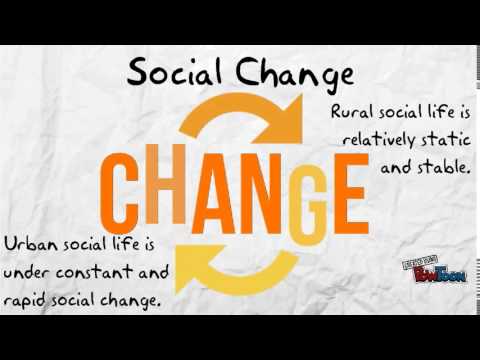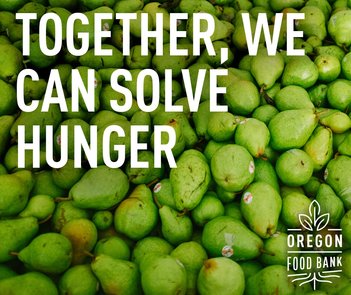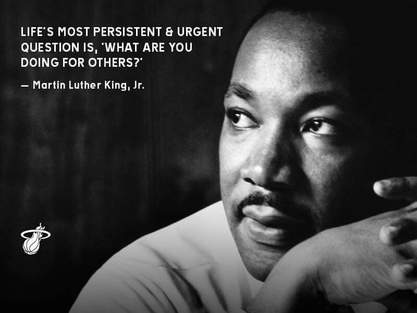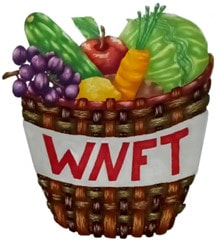 I saw a recipe the other day for a fresh apple upside-down cake. It looked delicious. It made me wonder why we eat so many foods right-side-up. All the garnishes, the flavor, the crunchy bits or melted cheese or icing, those are all on the top. We should eat them upside-down to get the most flavor. We even serve upside-down cake right-side-up. Seems like a weird obsession to me. On further contemplation, I'm realizing how much of our world has turned upside-down, inside-out. A few hundred years ago, poor people were actually the healthiest -- they got more exercise, grew their own food, lived simple lives and had longer life expectancy than their wealthy counterparts, who were idle and ate too much rich food. Now it's expensive to eat fresh, especially organic, food. Exercise often means joining a gym. The majority of Americans work sedentary jobs and can only afford less-expensive processed, mass-produced food. Poor people get outside less, and rich folks can indulge in all kinds of physical luxuries and top-of-the-line health care. A hundred years ago, America was a farming country. A family farm could support everyone on it, including hired help, and provide a little income as well. But as corporate economy grew, family farms couldn't compete. Poor people started moving to the cities, where they could find paid employment. The cities eventually encompassed ghettos, gangs, poverty in all its iterations, and suburbs started to grow as a place for "better" (read richer) living. And now, city rents are so high and other costs of living so demanding, that people of limited income can't afford to live there anymore. But with rural land now all fenced off, private property and few legal places to just settle down and live without purchasing land, we've eliminated options for the poor. We wonder why there are so many homeless, so many struggling, so many poor. Simple -- we created them. We took away the country, then took away the cities, and thousands of people have no place to go. What would you do if you couldn't pay and lost your home? Living with relatives is great, if you have relatives. Roommates crowding together works, sometimes, for a while. Couch-hopping is likely the next best option. Then you're pretty much down to living on the street or choosing a nomadic life where you hope to meet your needs through a combination of odd jobs and the kindness of strangers. In early America, the wealthy rural landowners had more influence politically. Now that a majority of our population is urban or suburban, we have an altered set of values that reflect our modern societal needs. But our government still favors the rural in many ways, such as providing a minimum of three congressional representatives per state, no matter how small the population (and, correspondingly, electoral college votes). So even though the needs of the majority of our people are far more socialist and cooperative, we're now governed by those who value isolation rather than a global community, less government as opposed to more and better services, a "if you want more, work more" attitude that doesn't translate to city dwellers whose rent is 80% of their income. Mostly, in the upside-down nature of our current society, we seem to have stopped trying to understand one another, to care about people who are different from us, to welcome the stranger. We become more and more insulated in our homes and behind our computers, and we forget that there might be a neighbor going hungry. Where we used to give food to any stranger who asked for it, we now avoid "those" people, assuming they're dangerous or criminal or lazy. We even travel the world only to stay in American hotels or walled-off all-inclusive resorts, where we don't have to experience what the native populations really live like. And if any of them dare beg for help, they're reported, reprimanded, removed, because that behavior can affect tourism dollars the rich depend on. I consider myself a humanitarian and an activist, but there are many days I don't go outside. I don't know my neighbors. I don't engage strangers in conversation. I care about feeding the hungry, but I mostly don't even do that anymore -- I just gather food and find someone else who's providing it to and interacting with the homeless camps. My world is protected, insulated, a safe distance from reality. What a shame that we feel the need to distance ourselves from one another. Our world has turned upside-down. Humankind has lost its humanity.
0 Comments
 I've been expressing political and human rights opinions the last few posts, and intend to keep doing that, but I do need to talk about Waste Not Food Taxi's work sometimes, too! WNFT continues to gain popularity and, more importantly, awareness in Washington County and the greater Portland area. Just yesterday, I had a terrific phone call with the director of Urban Gleaners in Portland, in which we discussed our mutual goals and collaboration opportunities. It's good to know we're not the only ones working on the massive global problem of food waste. Also yesterday, one of our volunteers dropped by with $75 in cash and several bags of food that her garden club contributed! Group efforts like this help us tremendously. Still, there's a huge amount of food waste. We've barely scratched the surface. The next major effort is working with the Oregon Food Bank. Yes, they do a lot to get food to families facing poverty. But they also waste a tremendous amount of edible food. They DO compost it, and I credit them for that environmental effort. But their food distribution system is based on independent pantries that offer food boxes and other free groceries to families in need. The pantries buy their food from OFB (at a deep discount), so must be independently funded. And that distribution model takes time -- at least several days. Lots of people working to feed the hungry are not approved partners of OFB, often due to lack of funding. Those are the groups WNFT is supporting. Everything we collect and give away is entirely free, and our only requirement is that meals be prepared in spaces that meet state standards for cleanliness and food safety. A big advantage these free-meal programs have is quick turn-around. They can take expired dairy products & meat and limp produce and get it out to homeless camps within 24 hours. So that milk that was dated yesterday can be served perfectly safely. Thousands of gallons and hundreds of tons are being composted due to slow distribution options and lack of manpower. I feel strongly that we can eliminate hunger in urban Oregon this year, if we can partner with the Oregon Food Bank. It'll take a little longer to reach rural communities, because we'd have to acquire funding for our volunteers to travel the state and potentially spend a night on the road. But we can do this. Thank you for your support!  I have a lot of conservative friends, and I know some of them are rolling their eyes when they see how fired up I am about the government mess we're in right now. They know I tend to get fired up about all the things that matter to me, that I can be called extremist, but politics? Why politics? I'm passionate about reducing food waste, because 25% of our landfills are food waste, and that's creating a tremendous amount of dangerous methane in our air. Pair that problem with the number of people who are struggling to get enough to eat, and I have to be fired up. I couldn't live with myself if I didn't address these problems that could so easily solve each other. I'm passionate about homelessness, and helping people realize that homelessness is the problem, not homeless people. I know there are solutions that would cost taxpayers less than we're paying now for the repercussions of the problem, but we have to think outside the box and be willing to take chances on radical ideas. I'm passionate about marginalized populations and have a big problem with people thinking it's OK to treat specific groups as less valuable, less important, less human. Or thinking that we get to tell other people whether their circumstances and choices are good or bad, ethical or immoral. But most of all, I'm passionate about 21st century America, the freedoms and privileges it offers and the potential for greatness in each of us. I'm very uncomfortable with a president who believes his ratings are more important than legal non-citizens' rights to come home to their families. Who believes shock value works in government the same way it works in reality TV. I'm worried about a bunch of billionaires with no public service experience all of a sudden running our government. I don't believe our country is safe with this leadership team. Oh, I'm safe. I'm white, a citizen, educated, with supportive family and friends. No, I'm talking about the other HALF of our population. People who weren't born in the U.S., people who can't read, people who are decent and hard-working but unable to rise out of poverty. People of color, a wide range of ethnic groups who enrich and deepen the quality of our country. Veterans left to live on the streets. Young women trapped in prostitution. People not on either end of the gender spectrum but falling somewhere in between, falling where we don't even have an appropriate pronoun, falling through the cracks of our male-or-female, black-or-white, right-or-wrong artificial sense of order. People who made mistakes and got dragged down to a dark underworld of addiction and can no longer see any light. Half of our country is under attack. Civil rights violations are running rampant, because this administration is allowing white supremacists to believe that they have permission to act out, to hurt innocent people, to judge and condemn and ostracize decent, kind people just because of some made-up difference that they think matters. We don't have the right to do this to anybody, ever, but especially not to the people who have already suffered at our hands for generations. People of African descent have put up with crap from us white people forever. They've fought hard and paid a high price for their rights and their freedoms. You think they're going to just sit back and let that all fade away? Not on your life. Native Americans have sacrificed everything to try to get along with us white folks. We've stabbed them in the back every time. You think they're going to let go of the little land and scrap of dignity they still cling to? Don't hold your breath. Just because all the garbage going on in Washington right now doesn't hurt us doesn't make it OK. It's not OK. It's absolutely 100% NOT OK, and we owe it to our country to fight for freedom, for fairness, for choice, for rights. We owe it to those who cannot stand on their own to stand up for them. How can we live with ourselves if we don't?  I've learned a lot about respectful conversation in the last month, thanks primarily to the Women's March leadership team, and the wonderful Margaret Jacobsen. The first (and likely most important) step in community organizing is talking and listening. I knew that. What I didn't know was that we white folks are doing it wrong. You've probably seen the fiery conversations on social media. A white privileged person makes a statement. A marginalized person challenges it. But they don't say, "Uh, excuse me, friend, I think you're mistaken in your assumptions here. Let's talk about this more deeply." They say, "Shut up, Bitch, you've got no idea what your talking about" (likely with more slang and a pissed-off tone). White clueless bubble-living woman says, "Wow, that's inappropriate. I believe in conversation, but if you could avoid the name calling, we could work this out." "Name calling, Becky? You think THAT's name-calling? You white cis women sit in your ivory towers, you've got no idea what oppression is. Don't you dare tell me how to talk." At this point, we uninformed folk tend to wash our hands of that person. We block them or unfriend them or just choose not to look in that group anymore. They just don't get it. If they could learn to speak proper English and show proper respect ... Bullshit. After oppressing the black community for our entire history, and continuing to allow oppression right before our eyes, after being apathetic to their plight because it doesn't touch us, we want THEM to learn? We think we can tell gay and trans people how they should talk to us, after the insults we've lobbed at them? Proper English and respectful conversation are fine for those of us who have had the luxury of communicating only that way. But we have to open our minds and allow emotionally-charged words and painful labels to be part of this conversation, or we can't possibly hear the pain, anger, resentment, indignation, and frustration that whole groups of our population are living with. Sure, we want to know what it feels like to be different, to be oppressed, to suffer constant injustice. Just say it my way, just come into my orderly little white hetero mainstream world and behave like me -- then I can hear you. It's time to toughen up, white friends, and be willing to hear what oppression feels like. These people have endured so much more than a few offensive names. Let's get over ourselves and really listen. Margaret Jacobsen, my new hero, has started a real conversation group called "Let's Talk." If you'd like information about February's meeting, please send me a message. As Margaret says, "Let's get uncomfortable together." |
AuthorSusie Snortum is passionate about improving society's compassion for meeting basic human needs -- food, shelter, clean water, and dignity. Archives
September 2020
Categories |
We appreciate your support!
Hours
|
Telephone
|
Email
|
ADDRESS: 17850 NW Park View Blvd, Portland, OR 97229 United States

 RSS Feed
RSS Feed